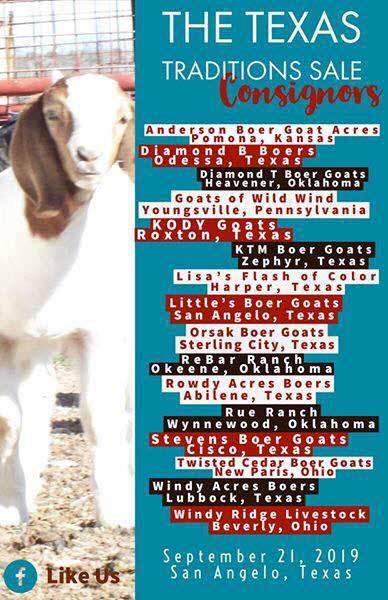
1 minute read
Pneumonia in Stressful Times
from Summer 2019
by TheBoerGoat
Pneumonia in goats
Many producers don't think about pneumonia in the summertime. But the infections of the lung tissue, can affect all ages in all environments.
Advertisement
Bacteria, viruses and parasites can affect the upper and lower respiratory trace. Warm, wet environments cultivate bacteria that play a role in the health of goats.
Below is a list of conditions that Dr. Dave Van Metre of Colorado State University said may increase the risk of pneumonia. • Overcrowded barns with poor ventilation. • Poor sanitation of barns. • Excessive dust • Wide variation in environmental temperatures (cold nights followed by hot days) • High humidity • Stress: Transports, birthing, heavy milk production, weaning and fighting other diseases • Failure to ingest adequate amounts of colostrum (Young animals.) • Bottle feeding (If kids take in too much milk, the milk may run into the windpipe and into the lungs.) • Infection with Caprine Progressive Pneumonia (CAEV) virus
Pneumonia can be contagious, depending on whether the infections is bacterial or viral. Certain bacteria can be transmitted as well.
Goats with pneumonia should be quarantined and treated immediately. First signs include lethargy, fever, coughing, thick discharge with a tint of white, and rapid or labored breathing.
There is no treatment for viral infections in goats. Consult a veterinarian to determine if the infections is bacterial, and if so, what medications are best suited for the illness.










